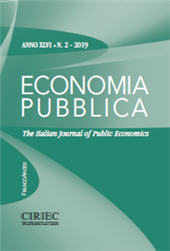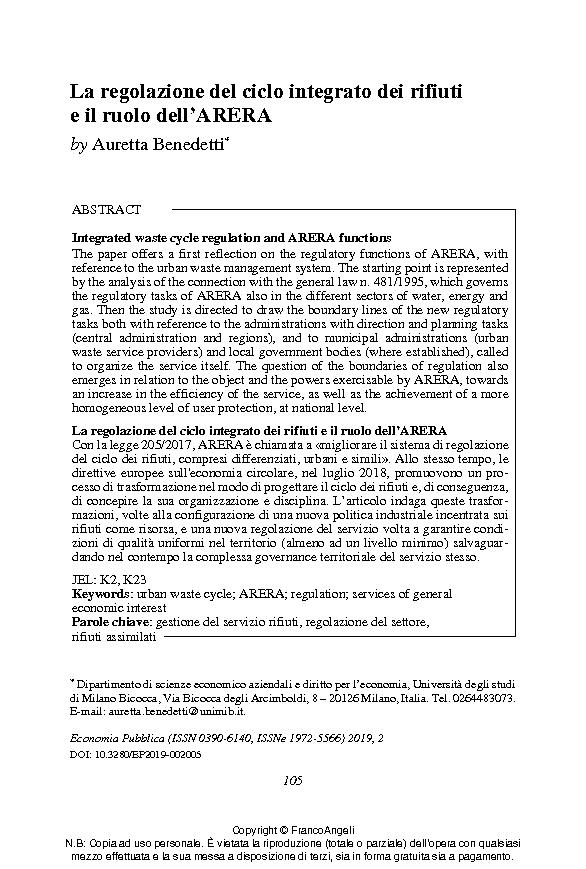La regolazione del ciclo integrato dei rifiuti e il ruolo dell'ARERA
105-122 p.
Con la legge 205/2017, ARERA è chiamata a «migliorare il sistema di regolazione del ciclo dei rifiuti, compresi differenziati, urbani e simili». Allo stesso tempo, le direttive europee sull'economia circolare, nel luglio 2018, promuovono un processo di trasformazione nel modo di progettare il ciclo dei rifiuti e, di conseguenza, di concepire la sua organizzazione e disciplina. L'articolo indaga queste trasformazioni, volte alla configurazione di una nuova politica industriale incentrata sui rifiuti come risorsa, e una nuova regolazione del servizio volta a garantire condizioni di qualità uniformi nel territorio (almeno ad un livello minimo) salvaguardando nel contempo la complessa governance territoriale del servizio stesso. [Testo dell'editore].
The paper offers a first reflection on the regulatory functions of ARERA, with reference to the urban waste management system. The starting point is represented by the analysis of the connection with the general law n. 481/1995, which governs the regulatory tasks of ARERA also in the different sectors of water, energy and gas. Then the study is directed to draw the boundary lines of the new regulatory tasks both with reference to the administrations with direction and planning tasks (central administration and regions), and to municipal administrations (urban waste service providers) and local government bodies (where established), called to organize the service itself. The question of the boundaries of regulation also emerges in relation to the object and the powers exercisable by ARERA, towards an increase in the efficiency of the service, as well as the achievement of a more homogeneous level of user protection, at national level. [Publisher's text].
Fait partie de
Economia pubblica : XLVI, 2, 2019-
Articles du même numéro (disponibles individuellement)
-
Informations
Code DOI : 10.3280/EP2019-002005
ISSN: 1972-5566
KEYWORDS
- Gestione del servizio rifiuti, regolazione del settore, rifiuti assimilati
- Urban waste cycle, ARERA, regulation, services of general economic interest



